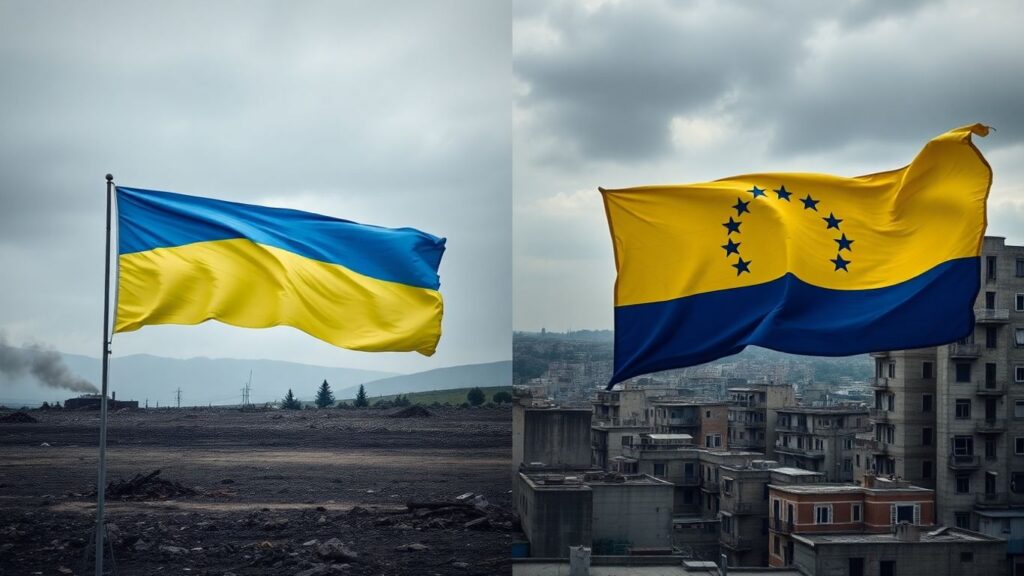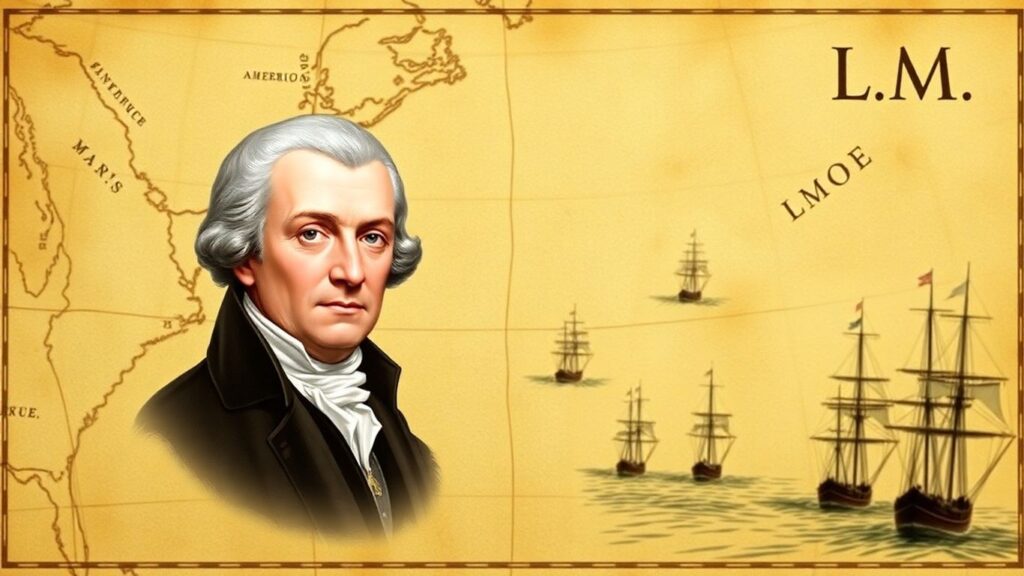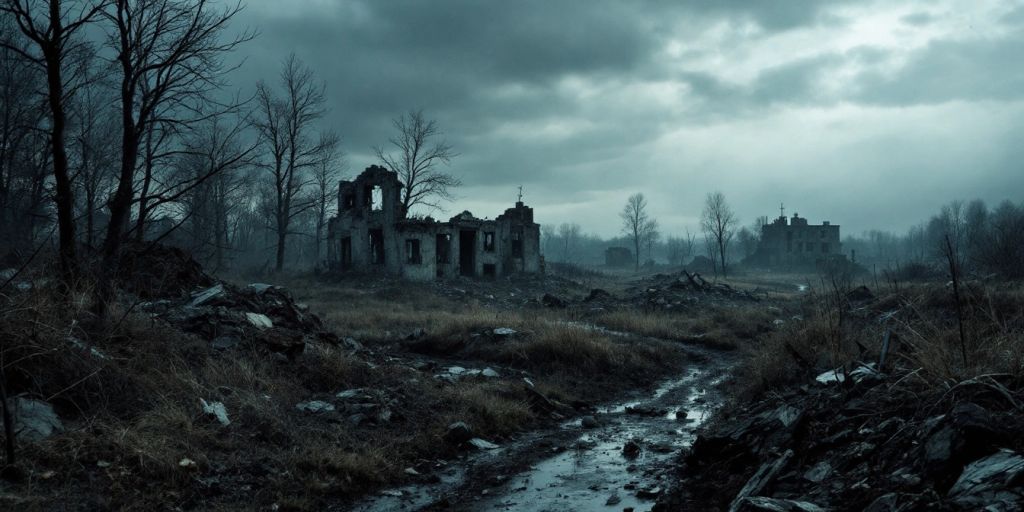Douglas Macgregor: Decline Out of Control – Ukraine and Venezuela Wars

Retired Colonel Douglas Macgregor joins us to discuss the current geopolitical landscape, focusing on the conflicts in Ukraine and Venezuela. He argues that these situations highlight a significant strategic vacuum and a broader decline in American influence and decision-making.
Key Takeaways
- The US military buildup off Venezuela’s coast may signal a genuine intention for intervention, not just intimidation.
- Lack of clear objectives and strategies plagues Western conflicts, reminiscent of past failures like Vietnam.
- Russian naval presence near Venezuela could be a signal against further US actions, potentially escalating tensions.
- US foreign policy is characterized by a lack of humility and an overestimation of its power, leading to dangerous miscalculations.
- There’s a disconnect between the need for long-term strategy and a political culture favoring quick fixes and personal relationships.
The Venezuela Situation: More Than Just Intimidation?
Colonel Macgregor views the US military buildup off the coast of Venezuela as a serious development, suggesting it’s more than just a show of force. He believes there’s a real willingness to intervene, a plan that’s been on the shelf for years due to Venezuela’s ideology and its connections to Russia and China. However, he questions the feasibility of such an intervention, given the country’s size and population. The core issue, he points out, is the lack of clearly defined political or military objectives, a problem that echoes past US interventions.
"What’s the specific political military objective that we’re striving to achieve?" Macgregor asks, drawing parallels to Lyndon B. Johnson’s approach to Vietnam, where slogans replaced concrete goals. He notes that the current situation lacks clear communication from the President about what the US aims to accomplish.
Unforeseen Consequences and Russian Signals
When considering the wider consequences of intervention in Venezuela, Macgregor points to historical patterns. He suggests that the CIA likely has operatives already in the country, potentially working with mercenary forces to instigate conflict. The presence of two Russian destroyers off the Venezuelan coast is seen as a significant signal. Macgregor interprets this as Russia’s response to what they perceive as US actions to weaken them, including NATO’s expansion and the prolonged conflict in Ukraine.
He highlights the dire situation in Ukraine, with reports of very young, inexperienced soldiers being sent to the front lines, leading to mass surrenders. This, he believes, has pushed Russia to a point where they feel they can no longer rely on persuasion and must act more decisively. The idea of a "multipolar world" and the end of a "rules-based liberal order" is seen by Russia as a shift away from US dominance.
Macgregor warns that a direct confrontation with Russian warships could have severe repercussions, potentially leading to a rapid escalation of the conflict in Ukraine. He criticizes the US belief in its own invincibility and the underestimation of Russian capabilities, calling it "nonsense" that has led to a "desperately dangerous situation."
Resource Control and the Monroe Doctrine
Beyond geopolitical signaling, the potential for controlling Venezuela’s vast natural resources is a significant factor. Macgregor notes that some American politicians view Venezuela’s alignment with Russia and China as a reason to assert control over these resources. He dismisses the Monroe Doctrine as a justification for such actions, pointing out that the US historically lacked the power to enforce it unilaterally.
He touches on theories linking Venezuela to the 2020 US election and the Dominion software issue, though he doesn’t see this as a justification for military intervention. More significantly, he discusses the idea of "collateralizing" Venezuela’s resources to boost the US economy and avert a financial crisis. However, he argues that this would require absolute control of the country, which the US lacks the ground forces to achieve.
Macgregor draws a parallel between current US intentions and Hernán Cortés’s conquest of Mexico, driven by the pursuit of gold. He believes this approach is unlikely to succeed and is unnecessary, especially since Venezuela offered lucrative deals to the US, which were reportedly refused.
The Ukraine Conflict and European Dynamics
Macgregor expresses deep concern about the ongoing conflict in Ukraine, calling President Zelensky’s actions a "horrific war crime" for seemingly being determined to kill as many Ukrainians as possible. He suggests that the Ukrainian secret police is highly effective, preventing the population from overthrowing the government. This situation forces Russia to advance further, potentially taking Odessa and moving towards the Dnieper River.
He believes that if the US and Russia come to blows over Venezuela, the conflict in Ukraine will rapidly escalate. The Russians, he argues, will question their restraint and the US’s failure to understand their legitimate security interests. Macgregor criticizes the US for not treating Russia and China as equals, attributing this to a lack of humility and a dangerous illusion of superiority.
He sees a potential for European governments to change, with new leaders emerging who may seek better relations with Russia. He points to the growing support for anti-war parties in Germany and the UK. However, he identifies Poland as a potential wildcard, urging caution regarding its current leadership.
US Troop Withdrawals and Strategic Miscalculations
Regarding reports of US troop withdrawals from Eastern Europe, Macgregor suggests this aligns with a potential desire by Donald Trump to disengage from European conflicts. However, he notes that Trump is surrounded by advisors pushing for increased engagement in Asia, particularly concerning China. Macgregor criticizes this approach as "blatant stupidity" and "self-defeating."
He reflects on President Eisenhower’s view of what a president needs to know: the international system, the economy, the military, and how to get elected. Macgregor believes that few modern presidents, including Trump, possess the necessary depth of understanding, often preferring theatrics and personal relationships over substantive policy. He argues that true greatness involves recognizing the limits of power and interests, something he feels is lacking in current US foreign policy.
Macgregor dismisses the idea of a 19th-century "offshore balancing" strategy in the 21st century, stating that technology has rendered such approaches obsolete and dangerous. He criticizes the focus on aircraft carriers as symbols of power, arguing their influence ashore is limited. He believes the US needs to move beyond outdated military thinking and address its significant debt and spending issues.
A World of Quick Fixes and Declining Power
Macgregor draws an analogy to military transformation programs, suggesting that attempts to magically fix problems with more money rarely succeed. He argues that the US economy is being driven by "financial capitalists" focused on short-term gains rather than building productive industries, with Elon Musk being a notable exception. He criticizes the lack of a coherent strategy in Washington for technology, industry, or agriculture, leading to decisions that prioritize short-term profit over long-term stability.
He believes the US has become a "microwave nation," expecting instant results, which is a stark contrast to the long-term strategic thinking of countries like China and Russia. He fears that Western Europe has made the mistake of imitating the US’s short-term horizon. Macgregor concludes that the current system is unsustainable and will likely break down, forcing a reevaluation. He agrees with the idea of "micromilitarism" being a sign of decline, where a nation constantly needs to assert its greatness. He sees no easy fix, suggesting that change will only come when the current system inevitably fails.








Responses